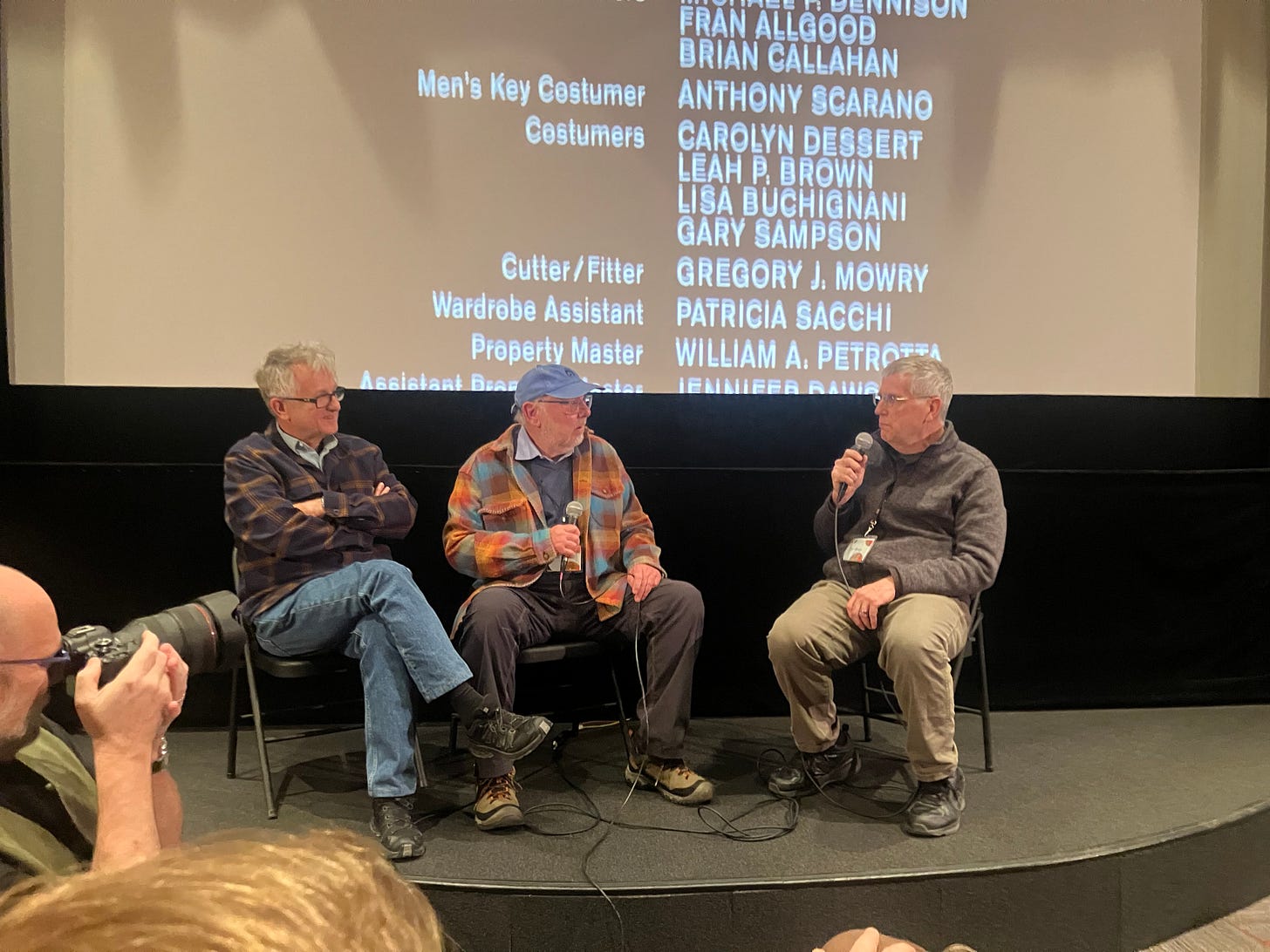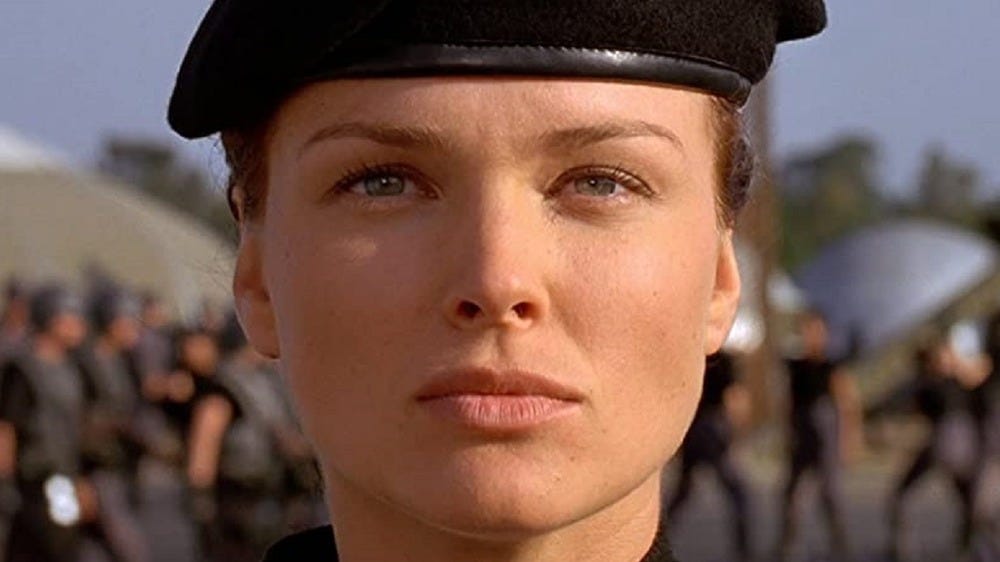The naked truth about 'Starship Troopers'
The movie's screenwriter and producer dish on their misunderstood masterpiece.

For me, the scene in Paul Verhoeven’s “Starship Troopers” that encapsulates its sly, demented essence is, surprisingly, not a battle scene. It’s the scene where a group of infantrymen share why they enlisted in the military to achieve the status of “citizen” in their fascist society known as the Federation. One wants to have a baby, another wants to go into politics, another wants to leave his home planet. Being a “citizen” willing to kill and die for the government unlocks those perks.
Most viewers might not be paying attention to this dialogue, though, because the characters happen to be all hot actors who are stark naked in a co-ed shower while they deliver them.
It’s part of the masterful misdirection that Verhoven and screenwriter Ed Neumeier pull off in the film, one that audiences and many critics fell for when it was released in 1997. “Starship Troopers” gives the audience simultaneously both a kickass hard-R war movie full of guns and blood (and nudity – it’s a Paul Verhoeven movie after all), and a wickedly funny critique of such movies as tools of fascist propaganda.
At the Wisconsin Film Festival Sunday night, “Starship Troopers” screenwriter Ed Neumeier and producer Jon Davison screened a gorgeous 35mm print of the film from Davison’s personal collection, and told stories about the film’s creation, lukewarm initial reception and enduring affection. Funny and cantankerous, these are not two guys who would make a straight-faced war story.
Robert A. Heinlein’s original “Starship Troopers” novel is that straight-faced war story, and Neumeier said he remembered loving it when he was 14 or so. But in deciding to adapt it, he was allergic to the idea of not messing with it in some way.
“The idea was to turn it on its head without stating it too much,” Neumeier said. “I have a hard time not writing things that aren’t a bit funny and satirical in some way. It was the intention to do propaganda and look at war movies, and in some ways to honor the military at the same time as making fun of the politics of war.”
The story of handsome Johnny Rico (Casper Van Dien) and his rise through the ranks (largely because everyone above him gets ripped apart by bug aliens) is a fairly straightforward war movie, with brave handsome soldiers led by gruff commanders into battle. Neumeier and Davison particularly looked at World War II films made during the war, which always ended with a call to arms to fight on.
It’s everything built around that “Triumph of the Will”-style storyline, especially the propagandistic “Would you like to know more?” videos, that provide the dark comedy. When Neil Patrick Harris shows up as a military intelligence officer in a full-on Gestapo outfit, if you’re still missing the joke by that point, you’re missing it deliberately.
Neumeier, Davison and Verhoeven had worked together on 1987’s “RoboCop,” which similarly snuck a critique of the corporate-military-police complex into an action movie. But Neumeier said that when he first approached Verhoeven, it was days before “Showgirls” was set to open, and Verhoeven was convinced it would be such a massive hit he’d never have to work again.
Two days after the notorious bomb opened, they began work on “Starship Troopers.”
Davison said the film was one of the last to use miniature models for its spaceships as visual effects were transitioning to CGI, and full- and half-size alien puppets were deployed for close-up battle scenes to augment the digitally-created creepers that scuttle throughout the film. Like “RoboCop,” the look of the film has held up surprisingly well over the years.
When Sony Pictures moved the opening date from the summer to November, Davison said he knew the movie would lose money. Neumeier said that while it played well overseas both critically and commercially, American audiences and critics didn’t know what to make of it.
“George Kaufman says ‘Satire closes on Saturday night in America,’ and we kind of did,” Neumeier said. “American audiences weren’t sure what to make of it. I was talking to another Wisconsinite the other day, Dan Harmon who did ‘Rick & Morty.’ He’s a big fan of ‘RoboCop,’ and said when he saw it, he was confused. He was like, ‘Who are the good guys?’ That was what we were trying to do.”
Audiences and critics seem to have finally caught up with “Starship Troopers,” perhaps because the real-world parallels have become harder and harder to ignore. In 2025, it’s still a blast, and also a chillingly prescient film about how fascism can seep into the cracks of a free society.
While we’re not paying attention.



